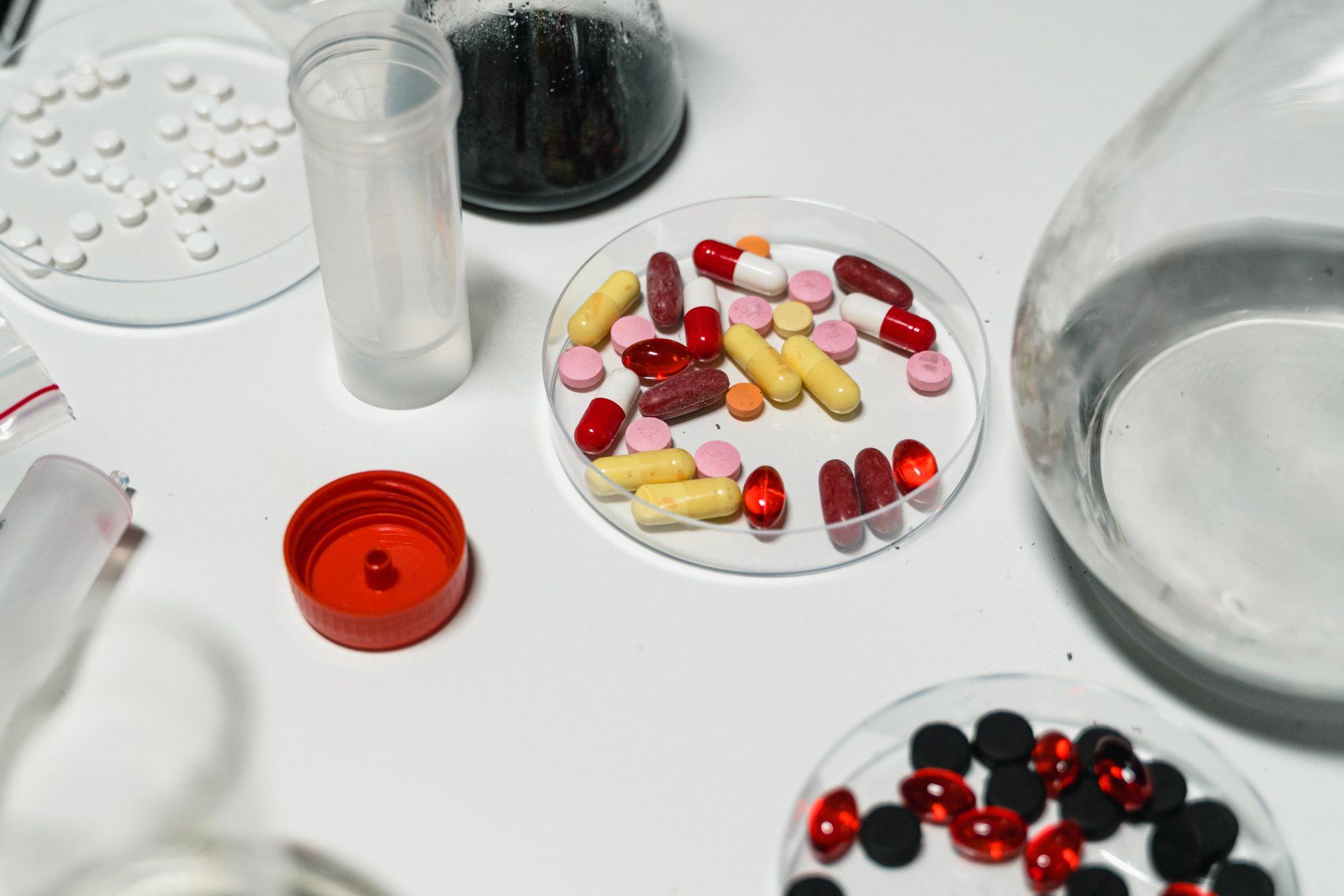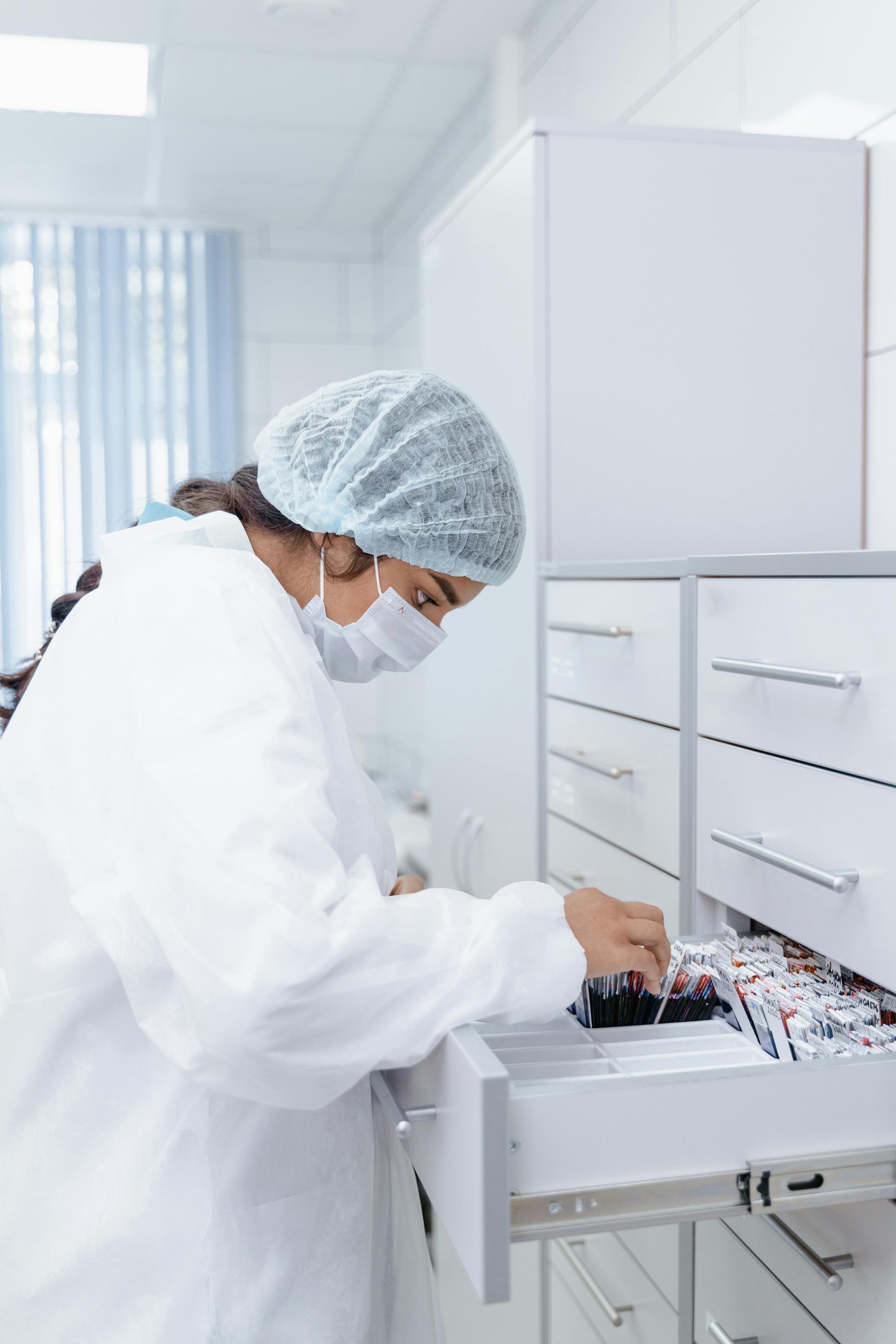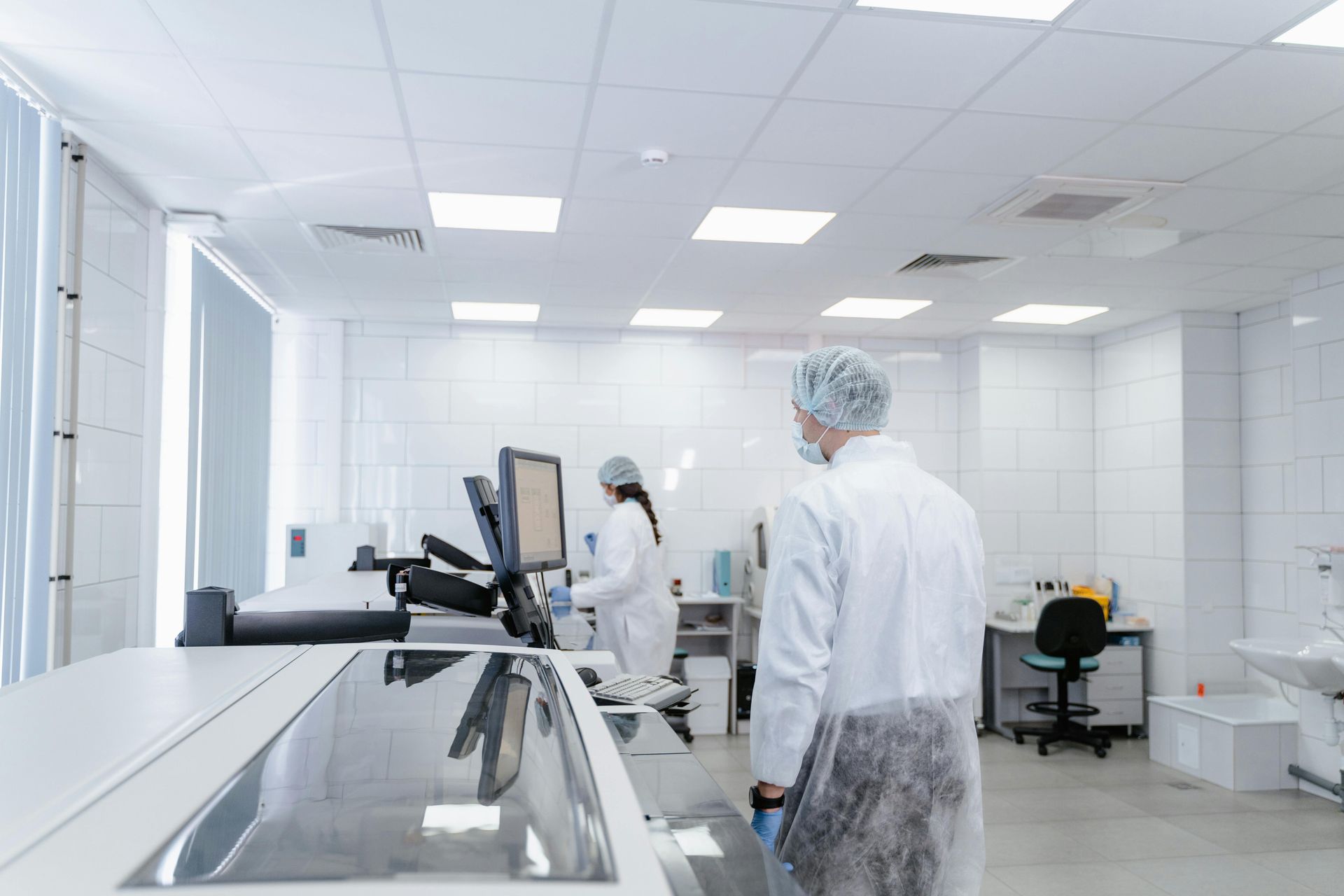The Importance of Current Good Manufacturing Practice (cGMP) in the Pharma Supply Chain Industry
The pharmaceutical industry is crucial to the overall health of patients around the world. Pharmaceuticals rely on efficient supply chains to safely develop and distribute essential medications. The extensive pharma supply chain includes procurement, production, and distribution to ensure product availability and control costs.

Current Good Manufacturing Practices (cGMP) is a critical regulatory framework that ensures pharmaceutical products meet high standards, ensuring the efficacy and safety of manufactured medicines. GMP compliance minimizes the risk of contamination and mislabeling, while also safeguarding consumer health by establishing industry-wide standards.
Earning a cGMP certification allows pharmaceutical professionals to gain demonstrable expertise in maintaining production quality and compliance, which is valuable for their employers and individuals aiming to advance their careers.
So, let’s explore how and why cGMP is crucial to ensuring the entire supply chain results in safe and effective medication for patients and why pursuing a
cGMP certification is often the right choice for pharmaceutical experts.
Understanding Current Good Manufacturing Practice (cGMP)
cGMP are foundational regulations in the pharmaceutical industry that strive to make sure all medications are produced to the highest standards of safety, quality, and efficacy. The ‘c’ before Good Manufacturing Practice (GMP) indicates the latest edition of GMP guidelines, as new editions are released periodically.
It’s worth noting that the overall cGMP standards also apply more broadly, from medical devices to food products, as these standards establish the necessary processes for safe and effective manufacturing.
The core practices in cGMP cover a range of development and manufacturing processes, a few notable standards including:
- Comprehensive testing at multiple stages in development
- Sourcing high-quality raw materials from reliable sources
- Establish standards and best practices for documentation
While there are certainly more standards involved in cGMP, the overarching purpose is to mitigate risks that may harm patients or reduce efficacy, such as cross-contamination, production errors, or material inconsistencies.
The US Food and Drug Administration (FDA) and the EU’s European Medicines Agency (EMA) play pivotal roles in defining cGMP standards and enforcing adherence to them. These regulatory oversights are crucial for safeguarding public health. Depending on the product and jurisdiction, these agencies may conduct frequent audits, require self-attestation, and request ongoing documentation.
For example, clinical and non-clinical trials are conducted for new medications, updated versions of established medications, or continued evaluation. Understanding how these processes should be conducted, documented, and reported is a critical aspect of maintaining GMP compliance. In the US, the FDA meticulously reviews all documentation before a drug is released to market.
Ultimately, cGMP aims to protect patient health, ensure consistently effective medication, and establish evolving standards that all pharmaceutical companies must follow. These rigorous standards and their enforcement help protect public health and prevent harmful materials or substances from affecting treatment.
The Impact of cGMP on the Pharma Supply Chain
cGMP significantly impacts the pharmaceutical industry and the supply chain manufacturers depend on. While several smaller practices and regulations are involved, the result is ensuring that all medications are produced consistently to provide safe and effective treatment.
Adhering to cGMP guidelines influences every stage of the manufacturing process, from raw materials procurement to the final distribution. Meeting these strict requirements ensures that medication has the same strength and purity regardless of the manufacturer—a necessity for providing consistent medical treatment.
Non-compliance with pharmaceutical manufacturing regulations can have far-reaching and severe consequences for pharmaceutical companies. Violations may lead to product recalls, legal actions, and financial penalties. Each of these possibilities can damage a company’s reputation and patient trust, which can be a challenge to repair.
Regulatory bodies like the FDA and EMA monitor pharmaceutical manufacturers to identify any non-compliant actions. This includes third-party audits that verify your organization is meeting the latest standards.
While meeting these standards can be challenging, keeping patient care at the forefront of compliance efforts is important. You’re not just checking boxes; you’re ensuring that every product released to market is safe and effective for consumer use.
GMP Certification for Career Advancement
Earning a GMP certificate makes individuals an asset to their organizations in many different roles. Individuals may wish to earn certification on their own, while employers may want to send employees to training and certification to upskill or cross-train them.
A cGMP certification prepares employees in various roles throughout the pharma supply chain to stay compliant in their day-to-day tasks. Additionally, earning this certification prepares personnel to step into roles requiring a comprehensive understanding of cGMP standards, such as management or quality assurance.
Individuals currently looking for a new work opportunity can benefit from the added credibility and marketability that’s gained from a cGMP certification, as these certifications require the completion of comprehensive training. Depending on the chosen company, you can attend in-person training or earn a
cGMP certification online.
The certification process involves dedicated study and understanding of cGMP guidelines. Certification courses cover a range of essential topics, including:
- Quality control
- Process validation
- Regulatory filings
- Audit preparation
- Internal auditing
Once the course is completed, a final exam must be passed before a GMP certification is awarded. As a result, everyone with a GMP certification demonstrates their ability to maintain or implement the strict standards necessary to keep the entire supply chain compliant in various roles.
Successfully earning a GMP certification indicates to employers that the employee can protect the company’s compliance standards and ensure patient safety, regardless of the specific role they hold.
Overcoming Challenges in GMP Implementation
Implementing and maintaining cGMP-compliant procedures throughout the organization can often introduce a range of challenges that must be addressed. Additionally, as GMP standards evolve over time, many of the same challenges need to be addressed, and new hurdles may arise.
The complexity of cGMP can vary based on the specific market and type of medication being manufactured, making understanding how to navigate these regulations specific to your own needs critical. So, let’s break down some common challenges and how you can address them.
Robust Quality Management Systems
Establishing and maintaining a quality management system is a foundational practice for becoming and maintaining cGMP compliance. Quality management systems should have clear procedures, effective communication between personnel or departments, and regular internal audits to ensure compliance.
Ideally, your system will not only comply with current GMP standards but also have the flexibility to change with future changes to GMP standards. Additionally, don’t restrict your quality management processes to cGMP, as you may have additional needs to ensure safe and effective manufacturing.
Quality assurance in pharma is critical both for ensuring patients receive a high quality of care and your organization remains fully compliant. Documentation is a cornerstone of quality management systems, making it critical that employees have the necessary training to create effective documentation.
Technology Integration
Relying on manual or low-tech processes can make establishing and maintaining cGMP compliance challenging bordering on impossible. GMP standards have evolved alongside the digital transformation of the pharmaceutical industry and you’ll need to adopt the right systems and integrations for compliance.
Beyond the specifics laid out in GMP standards, implementing automation reduces the risk of human error, which can often lead to non-compliant actions. Additionally, data analytics platforms can provide valuable insights that can be vital for improving quality control and overall optimization.
We’ll explore the future in greater detail below, but for now, it’s vital to keep in mind that technology continues to advance and evolve. As advanced technologies become adopted in the pharmaceutical industry, having existing integrations will establish a baseline for evolving your own systems.
Continuous Education and Training
Training never completely ends for many roles in the pharmaceutical industry, which makes it a challenge that needs to continually be tackled. New standards and technologies will likely require training so that employees are ready to stay compliant throughout their daily roles.
It’s wise to conduct regular training sessions so employees are up to date with the most recent regulations and you’ll be able to reinforce existing standards. Depending on your organization, some refresher training can be provided in house, but it’s worth working with a reliable training provider like CfPIE for more intensive sessions.
An ideal training session will use several different mediums, including interactive training, real-world problem-solving, and instructor-led sessions. While shorter sessions can be handled in-house, working with the experts is wise to ensure all information is understood and retained. If employees aren’t able to implement the training material in their daily tasks, GMP compliance may be at risk.
Engagement and Transparency
A common hurdle with maintaining GMP compliance is lacking employee engagement in following the right processes. Employees need to understand the impact of their work and how it affects product safety and efficacy, as the goal of compliance is not to check boxes, but protect patient care.
Implementing strategies to keep employees engaged in compliance, including transparency across all operations, so employees have a stronger understanding of how their tasks affect the overall organization. Taking a proactive approach to compliance is crucial to establishing and maintaining GMP compliance.
Creating a company-wide culture of compliance and an emphasis on patient safety goes far in keeping employees engaged in the process. While you won’t likely be able to create this culture overnight, it’s well worth the time and effort, as the end result is protecting patients and your compliance standing.
The Future of cGMP in the Pharma Industry
While nobody knows what the future may hold, we can still make educated predictions about how things may change. The pharmaceutical industry will continue to evolve alongside other technologies and medical practices, and these changes will be reflected in future editions of cGMP.
Several innovations affecting other industries will likely find utility in pharmaceutical manufacturing and supply chain management, influencing GMP in the process. A few technologies we may see affect the pharma industry are:
- Artificial intelligence and machine learning may unlock new methods of research, development, and production that profoundly affect future GMP standards.
- Advanced automation may unlock an entirely new level of efficiency, but configuring and monitoring these systems will be crucial.
- Blockchain technology may find some utility in pharmaceutical supply chain management to better document the entire life cycle of materials and medications.
As these technologies find utility, GMP standards will change right alongside them — or even before they become commonplace. Organizations need to be ready to adapt to how these technologies may change the industry.
Certifications Are Critical for cGMP Compliance
GMP standards ensure that all medications are safe and provide the same level of treatment. Meeting these standards is crucial for operating at any level in the pharmaceutical supply chain, from raw materials to the finished product.
Earning a GMP certification prepares personnel to apply these standards to their specific or future roles. Those seeking internal promotions or a new employer can also benefit from the added marketability and credibility that are possible with a certification.
CfPIE provides industry-leading cGMP training and certification that prepares graduates to apply these standards in their current or future roles. Once certified, graduates will be ready to ensure their compliance throughout the pharma supply chain to ensure all medication is safe and effective.
Are you ready to become a GMP-certified expert or upskill your personnel? Learn more about CfPIEs pharmaceutical and life science courses today — take the next step with some of our leading courses:
Blog Categories
Stay Informed


